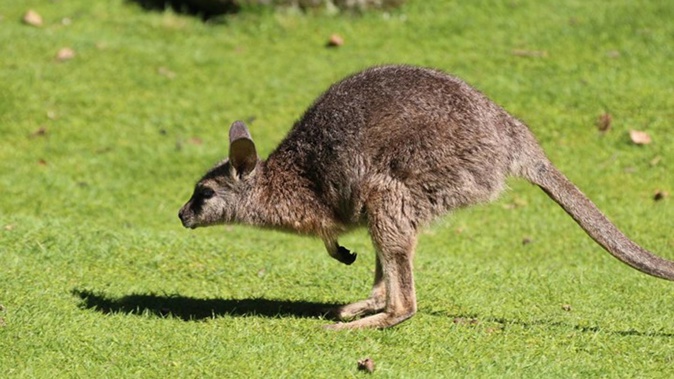
No evidence has been found of a resident wallaby population in the Horizons region.
A dead wallaby was found in Ongarue Waimiha Rd in the Ruapehu district on June 11, prompting an investigation. Horizons Regional Council covers Ruapehu, Rangitīkei, Whanganui, Manawatū, Palmerston North, Tararua and Horowhenua districts, along with parts of the Taupō, Stratford and Waitomo districts.
Horizons council environmental manager Craig Davey said officers worked with detector dog contractors to conduct searches of the land in and around where the wallaby carcass was found, as well as where a nearby unconfirmed sighting was reported.
“We’re happy to say those extensive searches yielded no further evidence of wallabies within our region.
“This appears to have been an isolated incident and there is no indication of a resident wallaby population in the area.”
Biosecurity Week wrapped up in New Zealand on July 30.
Davey said it was a good time to remember the significance of safeguarding the environment against invasive species such as wallabies.
The most common wallaby in the North Island is the dama wallaby, which stands up to 50cm tall and weighs 4-7kg.
At the time of the discovery in June, Davey said wallabies were a significant introduced pest, threatening the environment, biodiversity and the economy.
“They are browsers, preferring to eat young plants and seedlings. Their browsing removes forest understorey, which impacts regeneration, native habitats and food sources.
“Their competition for food sources impacts native wildlife, including native birds.”
According to Biosecurity New Zealand director of response John Walsh, wallabies would cost the country about $84 million a year in damage by 2025 if left unchecked.
He said over the next 50 years, they could spread to a third of the country.
Canterbury Regional Council will soon build a 48km pest fence — a two-year project — as part of its battle against the animal.
Everyone played a part in protecting the Horizons region and its unique environments against pest plants and animals, Davey said.
“Our team is available to provide advice and expertise to people wanting to take part in that protection effort and can be contacted by calling Horizons on free phone 0508 800 800.”
Any sightings or signs of wallabies anywhere in Aotearoa New Zealand should be reported to Biosecurity New Zealand. This can be done online at www.reportwallabies.nz.
Take your Radio, Podcasts and Music with you









